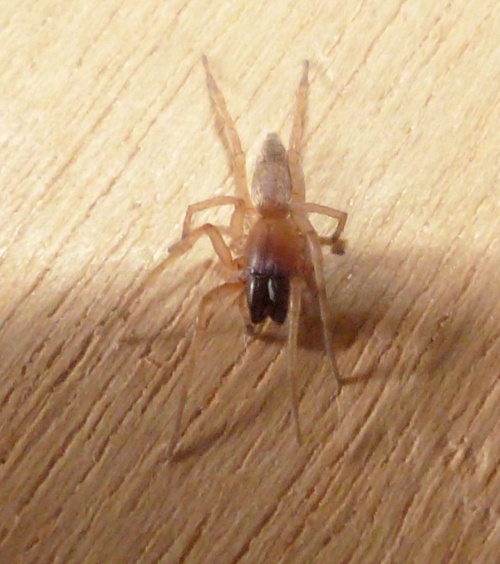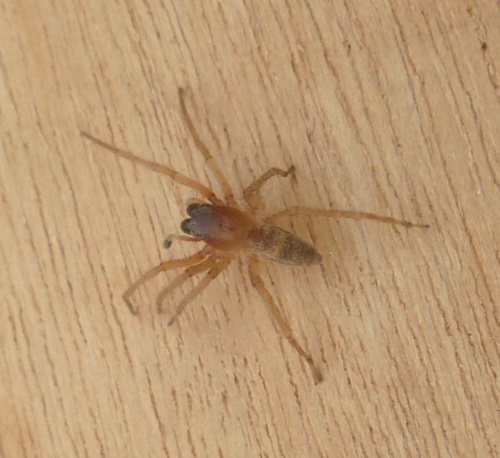Clubiona phragmitis
One of several similar looking Clubiona, although this species has much more robust chelicerae than the rest of the genus. Microscopic examination of the genitalia is necessary to confirm identification.
Microscopic examination of the genitalia is necessary to confirm identification.
Can be found in most wetland habitats, especially in emergent vegetation at the edge of water and occasionally on sand dunes. In standing water the spider may be seen stalking prey on stems just above the waterline.
Adults have been found throughout the year, but mostly in late spring to mid-summer and late summer to early autumn.
The silk retreat is often easiest to see, woven into a folded reed leaf or Phragmites head, where the female may be found guarding her egg-sac.
The species is widespread in much of England from Yorkshire southwards and lowland Wales, but very scattered in south-west England and northern Britain.
Fairly frequent in Leicestershire and Rutland.
Leicestershire & Rutland Map
Enter a town or village to see local records
MAP KEY:
Yellow squares = NBN records (all known data)
Coloured circles = NatureSpot records: 2025+ | 2020-2024 | pre-2020
UK Map
Species profile
- Species group:
- Spiders
- Kingdom:
- Animalia
- Order:
- Araneae
- Family:
- Clubionidae
- Records on NatureSpot:
- 8
- First record:
- 23/06/1979 (Don Goddard)
- Last record:
- 20/03/2020 (Cann, Alan)
Total records by month
% of records within its species group
10km squares with records
The latest images and records displayed below include those awaiting verification checks so we cannot guarantee that every identification is correct. Once accepted, the record displays a green tick.
In the Latest Records section, click on the header to sort A-Z, and again to sort Z-A. Use the header boxes to filter the list.







